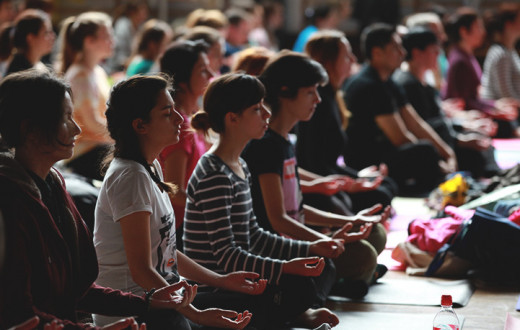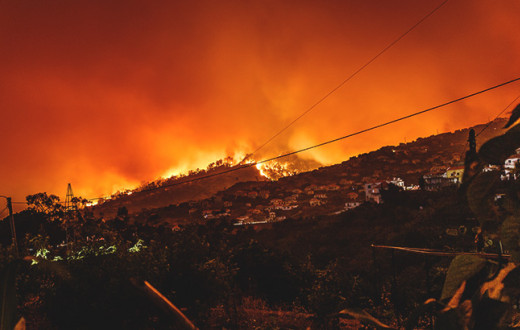By Elizabeth Herman | Posted: June 27, 2019
Did you know that only 9% of United States (US) plastic is recycled, while 30% of Europe’s plastic is recycled? Ironically, while we pollute at astronomical rates here in this country (second only to the People’s Republic of China), many other countries, in Asia, South America, Africa, and elsewhere, have recently committed to cleaning up this problem. Meanwhile, the US has declined to participate in that commitment.
In 2015, humans across the globe produced around 322 million tons of plastic and that figure rose to almost 350 million by 2017. Is recycling the best solution to the plastic pollution problem? According to research being done in Canada, a country which has resolved to ban single use plastics within the next 2 years, the best and fastest way to stop plastic pollution is to stop plastic production. Dr. Max Liboiron likens a sustainable future including plastic production to working towards bailing out a boat when “you haven't plugged the hole that's sinking the boat.”
What would be the fastest way to stop plastic production? We can focus on curtailing consumption of plastic, with the admonition to reduce, reuse, and recycle, but that will take too long to influence producers. The threats to our planet are increasingly time sensitive. Wouldn’t it be faster to focus on significantly slowing and stopping plastic production rates? Many experts say “YES.”
Packaging and single use
Of all the types of plastic that are made, packaging creates the most polluting waste, and proliferates in production more than all other categories of plastic usage, before building construction and textiles.
The World Economic Forum discusses the history of plastics, and points out that although we have found them useful in the past, “these materials have serious downsides. They degrade painfully slowly, meaning that polyolefins will survive in the environment for decades to centuries. Meanwhile, wave and wind action mechanically abrades them, creating microparticles that can be ingested by fish and animals, making their way up the food chain toward us.”
If it makes you uncomfortable to know that you’ve been ingesting, and probably breathing microparticles of plastic involuntarily, you can also realize the ancient wisdom that we become what we ingest. The old adage "you are what you eat” still holds true. In fact it may also be fitting to start a new proverb, such as “you are what you produce,” or “you are what you throw away.” The hope is that such awareness will motivate you to act on behalf of stopping plastic pollution.
The worst plastic producers
While it helps to know which retailers in our country are committed to not consuming so much single use plastic, it also should help to know which ones are most guilty of pushing plastic on consumers, and which plastic producing companies need to be told to stop. According to a recent PBS Newshour report, research shows that by 2050, there will be more plastic than fish in our oceans. Unless we stop production, the pollution will overrun the earth as well as the earth’s water.
Greenpeace identifies the following 10 corporations as producing the most single use plastics, and these are only 10 out of millions of others:
Coca-Cola
PepsiCo
Nestlé
Danone
Mondelez International
Procter & Gamble
Unilever
Perfetti van Melle
Mars Incorporated
Colgate-Palmolive
Some of the ways of communicating your commitment to help stop plastic pollution include contacting the chief executives of these companies, telling them to stop contributing to plastic pollution and persuading them by not buying their products or investing in them.
Upcycling plastic
The following four innovative ways to take used plastic products and make something new and immediately usable out of them, also known as upcycling, reveal another way to move forward towards a better way of living on the planet, in addition to keeping plastic out of the oceans and landfills.
This process not only improves on recycling in terms of efficiency, but it’s also more emotionally satisfying for the individuals who decide to engage in it. These examples represent wonderful ways humans can address several global crises at once, including poverty and climate change:
A Dutch couple created a vehicle from used plastic that could withstand Antarctic cold, called the “Solar Voyager.”
Women in India reuse discarded plastic creatively to create colorful works of fiber art, including bags, keychains, etc.
The Chelsea Flower Show in England has hosted a program teaching school children to upcycle wellies (rain boots with holes in the bottom for drainage) and plastic colanders (food drainers from the kitchen) as pots for flowering plants.
A recycling program “The Plastic Bank” helps fight extreme poverty by selling insurance, school tuition, wifi, cell phone minutes, power, sustainable cooking fuel and high-efficiency stoves, and other commodities that poor people need in exchange for plastic garbage, to prevent this newfangled currency from flowing into the world’s oceans.
Using the media
Appealing directly to plastic producers in the most effective way may involve more than stopping personal consumption of single use plastic. We may need to contact producers not only via their profits, but also through media blitzes and awareness campaigns.
We invite you to inspire others and be part of these efforts. Social media can help a great deal. Share your ideas to stop plastic production and plastic pollution on social media. Inspire 5 more friends to join you in eliminating single use plastic with #BeatPlasticPollution and #MyMissionGreenEarth, and tag us at fb.me/mymissiongreenearth or instagram.com/mymissiongreenearth to make a difference!
The Art of Living’s Mission Green Earth initiative in collaboration with the UN offers a way to get involved. Join us and help to rescue our only liveable planet from the onslaught of plastic pollution. Whether some US political leaders believe it or not, it feels good to help a worthy cause like this one and have a healthy relationship with mother nature.
By Elizabeth Herman - PhD in English, with concentrations in Rhetoric and Composition, and Literature, she offers writing support to clients, teaches locally, lives in Boone, NC, and volunteers for a better world.



















